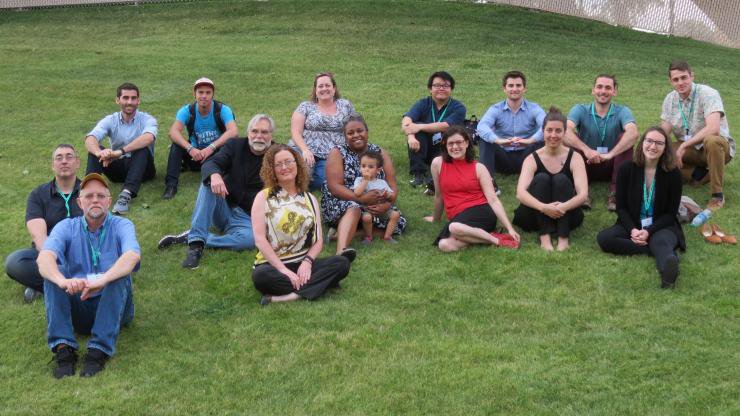
Nov. 20, 2017
Feature Story
Astrobiology Rising at Georgia Tech
What will a coalescing community of Tech researchers discover about life in the cosmos?
Georgia Tech University in Atlanta, Georgia, has become a hub for astrobiology research. The Astrobiology Program supports numerous projects at Georgia Tech through elements including Exobiology & Evolutionary Biology, the NASA Astrobiology Institute, P-STAR, PICASSO, and the NASA Astrobiology Postdoctoral Program. Georgia Tech also houses the NSF/NASA Center for Chemical Evolution (CCE), which is a collaborative program co-funded by the NASA Astrobiology Program.

Cesar Menor-Salvan, Nick Hud, Justin Lawrence, Jacob Buffo, Frank Rosenzweig, Amanda Stockton, Britney Schmidt, Kennda Lynch, Gavin Mendez, George Tan, Jennifer Glass, Zachary Duca, Nadia Szeinbaum, Aaron McKee, Chloe Stanton, and Marcus BrayImage credit: Courtesy of Jennifer Glass, GA Tech.
—The excerpted press release is available through the Georgia Tech website.—
In the Ford Environmental Science and Technology Building, the office of Martha Grover is three doors from that of Jennifer Glass. Both are Georgia Tech scientists doing research related to astrobiology – life in the cosmos – but until last year they hardly talked to each other as researchers with common interests.
“We are all so busy,” says Grover, a professor in the School of Chemical and Biomolecular Engineering, a scientific collaborator at the NSF/NASA Center for Chemical Evolution (CCE), and a member of the Center for Space Technology and Research (C-STAR).
Now, Grover, Glass, and others at Tech are members of a growing community that’s coalescing astrobiology activities across campus.
[Read the full story at the Georgia Tech website]